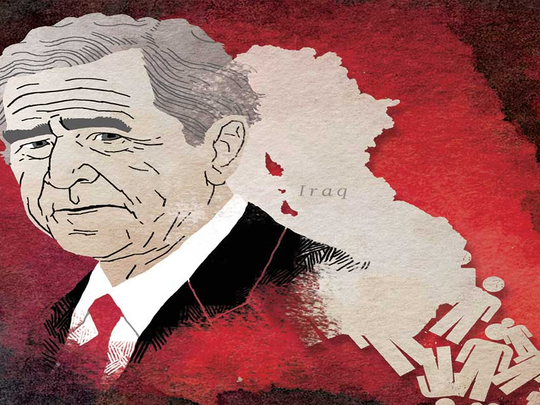
I watched the live memorial services last week that were being held in the city of Dallas, Texas, in honour of five police officers who were killed during a sniper attack by a black gunman. The killings took place during a Black Lives Matter rally, which was a result of the earlier killings of two black young men by the police. The lone-gunman was reportedly vowing to avenge their deaths and so he took it upon himself to shoot down several police officers, killing five of them in the process.
The memorial for the slain officers was heralded by the visit of United States President Barack Obama, who delivered a very charged and emotional speech in the presence of the families of the five police officers killed in the sniper attacks in Dallas and other members of the Dallas community. He was also joined by a delegation that included former president George W. Bush as well as leaders from the community and clergy from several faiths.
As he spoke, Obama said: “I’m here to insist that we are not as divided as we seem. Race relations have improved dramatically in my lifetime. But we know that bias remains. We know it! We have all seen this bigotry in our lives. Perhaps we’ve heard it in our own heads and felt in our own hearts. None of us is entirely innocent and no institution is entirely immune. I’ve spoken at too many memorials during the course of this presidency, I’ve hugged too many families. I’ve seen how inadequate words can be in bringing about lasting change. I’ve seen how inadequate my own words have been.”
Acknowledging that the Dallas killings were “an act not just of demented violence, but of racial hatred” Obama said he sympathised with those Americans who wondered if the racial divide would ever be purged. “It’s as if the deepest fault lines of our democracy have suddenly been exposed, perhaps even widened. And although we know that such divisions are not new, though they have surely been worse in even the recent past, that offers us little comfort.” He concluded his speech on an upbeat swing, insisting that there must be hope. “Dallas, I’m here to say we must reject such despair. See, that’s the America I know.”
When Bush took the podium, he said: “Today, the nation grieves, but those of us who love Dallas and call it home have had five deaths in the family. I see members of law-enforcement every day. We count them as our friends. And we know, like for every other American, that their courage is our protection and shield. With their deaths, we have lost so much. We are grief-stricken, heart-broken and forever grateful. Every officer has accepted a calling that sets them apart. But none of us were prepared, or could be prepared, for an ambush by hatred and malice. The shock of this evil still has not faded. At times, it seems like the forces pulling us apart are stronger than the forces binding us together. Argument turns too easily into animosity. Disagreement escalates into dehumanisation. Too often, we judge other groups by their worst examples, while judging ourselves by our best intentions.”
I could not help wonder as I listened to his speech so soon after the release of the Chilcot report on how Bush could masquerade behind such comforting words to the families of five dead policemen, and yet there he was, the same man who as president of America at the time had orchestrated the illegal invasion of Iraq on falsified evidence and which subsequently led to the death of more than one million innocent civilians. As an added bonus, his reckless incursion into a country that had nothing to do with 9/11 or weapons of mass destruction resulted in chaos and lawlessness descending upon the country and which eventually gave birth to today’s global terror group Daesh (the self-proclaimed Islamic State of Iraq and the Levant). Had this man forgotten so quickly the blood of victims on his hands?
The Chilcot report, named after the chairman of the probe body, Sir John Chilcot, categorically stated that the war against Iraq was based on “far from satisfactory” damning evidence and that the then prime minister of the United Kingdom, Tony Blair, had “deliberately exaggerated the threat posed by the Iraqi regime as he sought to make the case for military action to MPs and the public in the build-up to the invasion in 2002 and 2003”.
Furthermore, the inquiry had uncovered evidence that Blair had promised Bush, eight months before the Iraq invasion, to offer his unqualified backing for war, well before the United Nations weapons inspectors had complete their work, saying: “I will be with you, whatever.”
The actions of both these men fall well within the spheres of war crimes, and to many, Bush and Blair are indeed war criminals.
Perhaps an inquiry similar to the Chilcot one should be considered in the US to bring to the fore the macabre intentions behind the war against Iraq.
Meanwhile, for the countless victims of that illegal war, there will be no memorials or speeches held. They have long been forgotten or dismissed as ‘collateral damage’.
Tariq A. Al Maeena is a Saudi sociopolitical commentator. He lives in Jeddah, Saudi Arabia. You can follow him on Twitter at www.twitter.com/@talmaeena Twitter.com /@talmaeena










